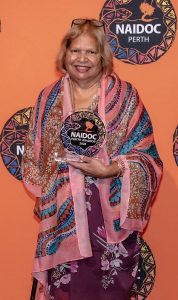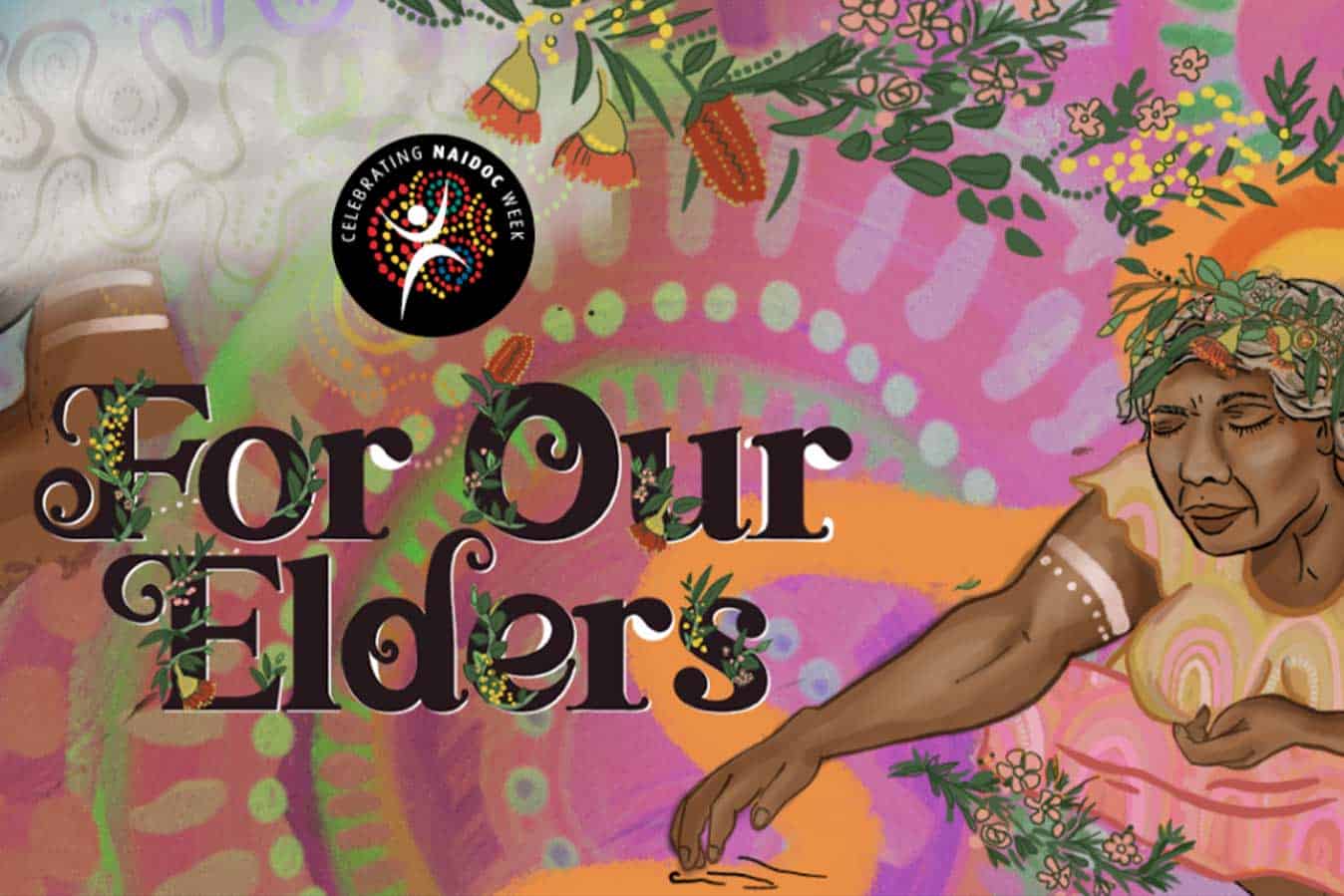“If I can do it, you can do it,” is the motto of a trailblazing Aboriginal mother and daughter duo at the grassroots of improving access and quality healthcare in their communities, along with inspiring the next generation to choose health as a career pathway.
The theme for NAIDOC Week 2023 For Our Elders is a tribute to Aboriginal and Torres Strait Islander Elders and to their collective knowledge, wisdom, and shared history that serves as a significant link in the rich tapestry of Aboriginal culture.
Winner of this year’s Perth NAIDOC Elder of the Year Awards, Aunty Jane Jones has dedicated over two decades of her 50-year nursing career to serving the Aboriginal community at Derbarl Yerrigan Health Service located in Boorloo (Perth).
Having begun her career aged 17, Ms Jones has worked tirelessly to address the health of Aboriginal and Torres Strait Islander peoples of Perth. As the Nurse Practice Manager at Derbarl Yerrigan, Aunty Jane understands the challenges faced by clients in accessing mainstream healthcare services, including attending outpatient hospital appointments.
“The biggest difference with our service is having health workers sit with patients. We provide a ‘meeting place’ for people, it’s a great space for yarning. People can come and have a chat. We do a lot of yarning. It’s how we get information and answers. It’s a great tool,” she said.
The National Aboriginal Community Controlled Health Organisation (NACCHO), the national leadership body for Aboriginal and Torres Strait Islander health plays a fundamental role in supporting the ACCHOs to successfully aim for and achieve the mantra of ‘Aboriginal health in Aboriginal hands’, including advocating for structural reform on policy and budget matters and for community-developed solutions that contribute to the quality of life and improved health outcomes for Aboriginal and Torres Strait Islander peoples.

The incidence of care is high, with ACCHOs providing around 3.1 million episodes per year for almost 410,000 people across Australia, including about one million episodes of care in remote regions.
Data from the Australian Health Practitioner Regulation Agency (Ahpra) shows only 1.4% of registered nurses and midwives identify as Aboriginal and Torres Strait Islander, despite Indigenous Australians comprising 3.3% of the total population.
“There’s lots that needs to be done to build the workforce capacity up to make it more culturally appropriate. We need an Aboriginal and Torres Strait Islander workforce for Aboriginal and Torres Strait Islander peoples. We need our own people representing us in the workforce if we are serious about closing the gap [in health outcomes],” Ms Jones said.
“The problem of recruiting and retaining a skilled healthcare workforce means some of Australia’s sickest people are denied access to primary health care in many of our communities. Urgent action and real solutions are needed,” NACCHO CEO Pat Turner said.
Ms Jones will continue to advocate for cultural safety practices in healthcare settings and address the inequities, acknowledging that not everyone starts from the same place.
“It’s about justice, being treated fairly. A lot of my work encompasses advocacy on behalf of our Aboriginal clients, and to help give them a sense of empowerment for their positive psychological, social, emotional, and spiritual wellbeing,” she says.
A leader for her community, Aunty Jane Jones is also an inspiration to her daughter, Tamara Jones, a community midwife with nine years of experience.
As a Whadjuk, Ballardong and Willman midwife, Ms Jones provides culturally appropriate care, working as a midwife at Wirraka Maya Health Service, an Aboriginal Medical Service (AMS) and a NACCHO member.
For Ms Jones, it’s not just about birth outcomes but the overall wellbeing of the women and their children. By empowering women to make their own decisions and serving as a holistic caregiver, she acts as a conduit between patients and their families, recognising the significance of cultural differences and offering tailored options.
“Every woman should have access to an Aboriginal midwife if they choose to, as it is critical to understand cultural differences and have options offered that suit them. The struggle of being denied this choice is a problem that occurs all too often.”
“I feel that we have made progress in health and fairness and equity, but we still have a long way to go. Rheumatic heart disease is quite high and with that cardiac complications in obstetrics,” Ms Jones said.
NAIDOC Week serves as a platform for individuals from all backgrounds to engage in culturally rich activities and support the voices of Aboriginal and Torres Strait Islander communities. By participating in this celebration, we have the opportunity to contribute to the ongoing efforts to bridge the gap in healthcare and promote equity and social justice.

Aunty Jane Jones and her daughter Tamara Jones exemplify the dedication, passion, and leadership needed to improve healthcare access and outcomes for Aboriginal and Torres Strait Islander peoples. Their work within ACCHOs, their advocacy for culturally safe practices, and their commitment to empowering individuals and communities are catalysts for positive change.
In contemplation for this year’s NAIDOC theme, For Our Elders, it’s an opportunity to recognise and celebrate eldership in all its forms including the wisdom, history, and legacy of those that came before us. Visit www.naidoc.org.au








